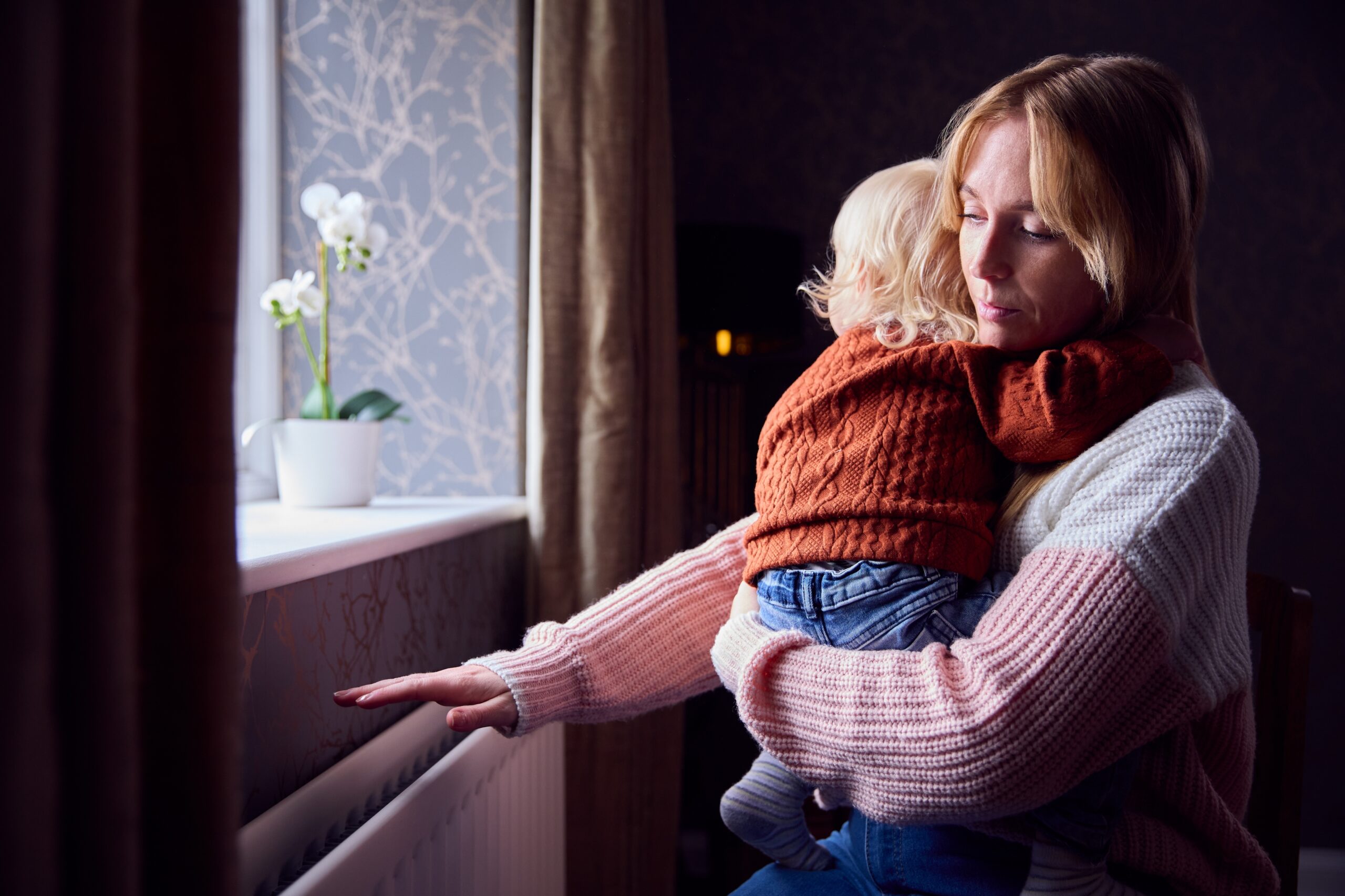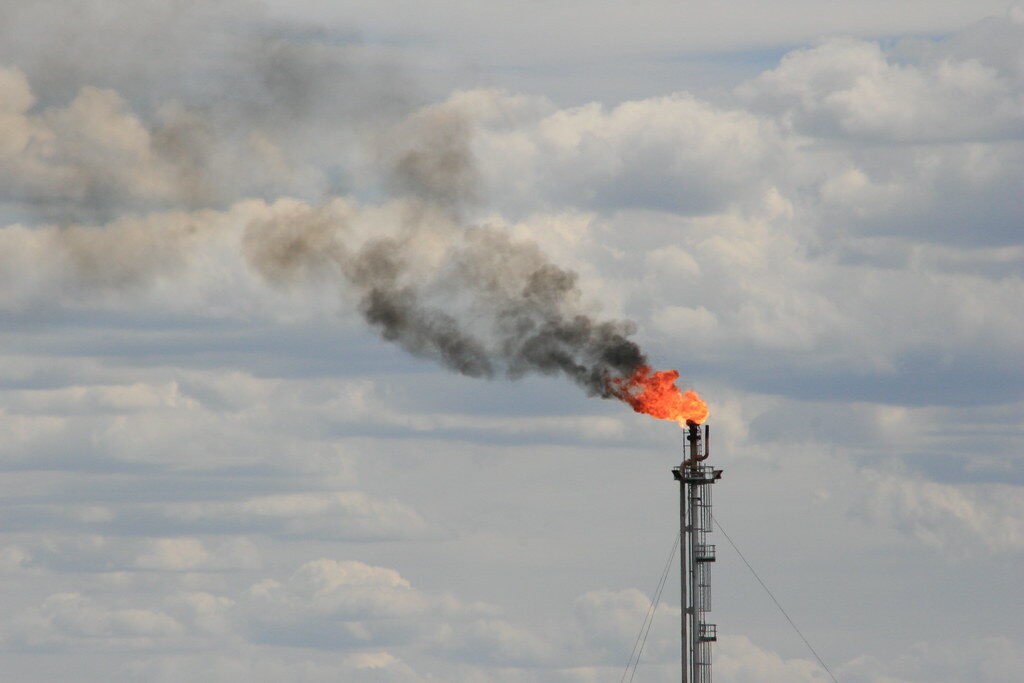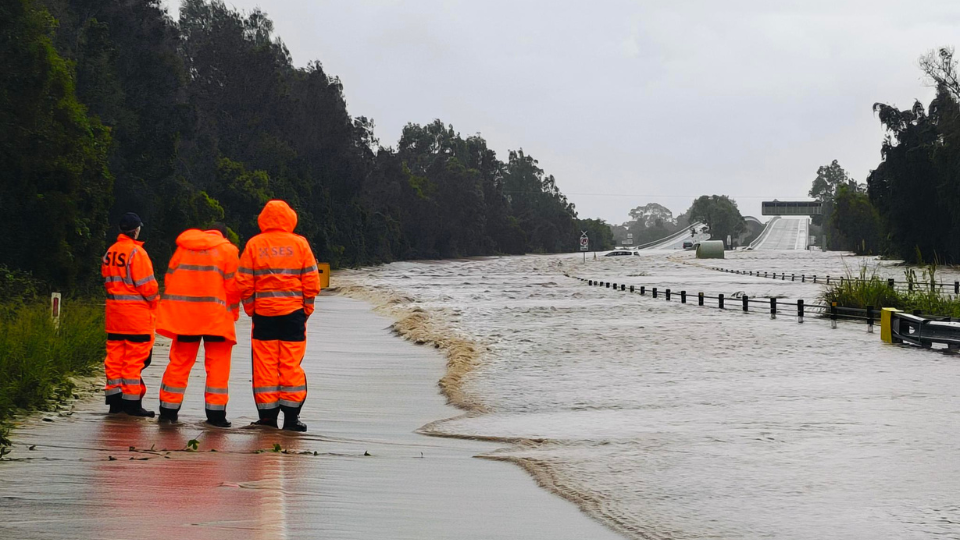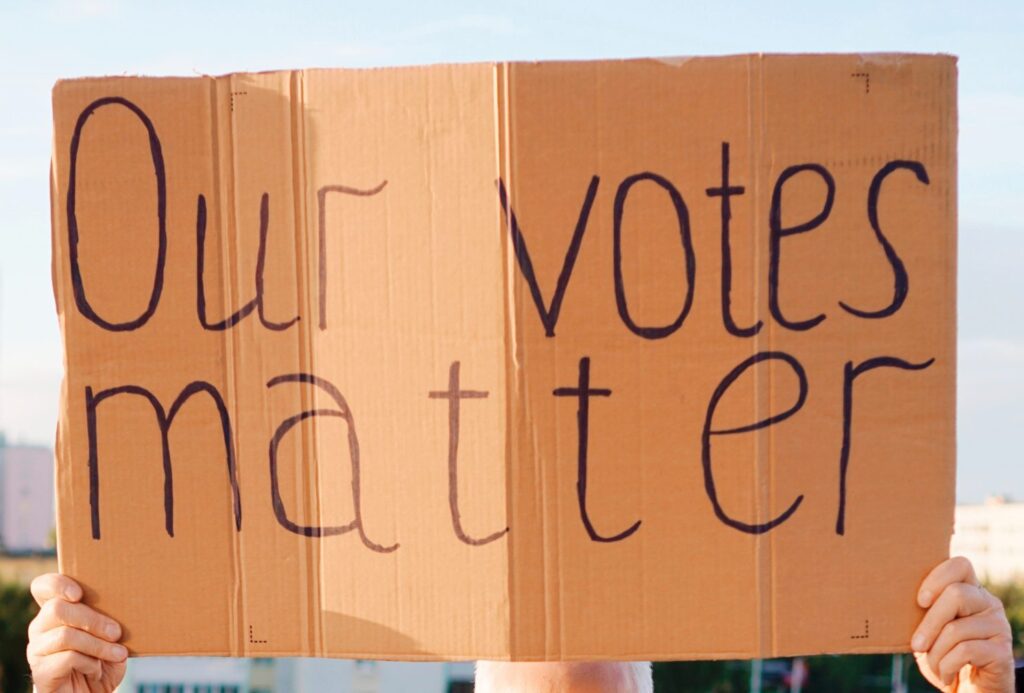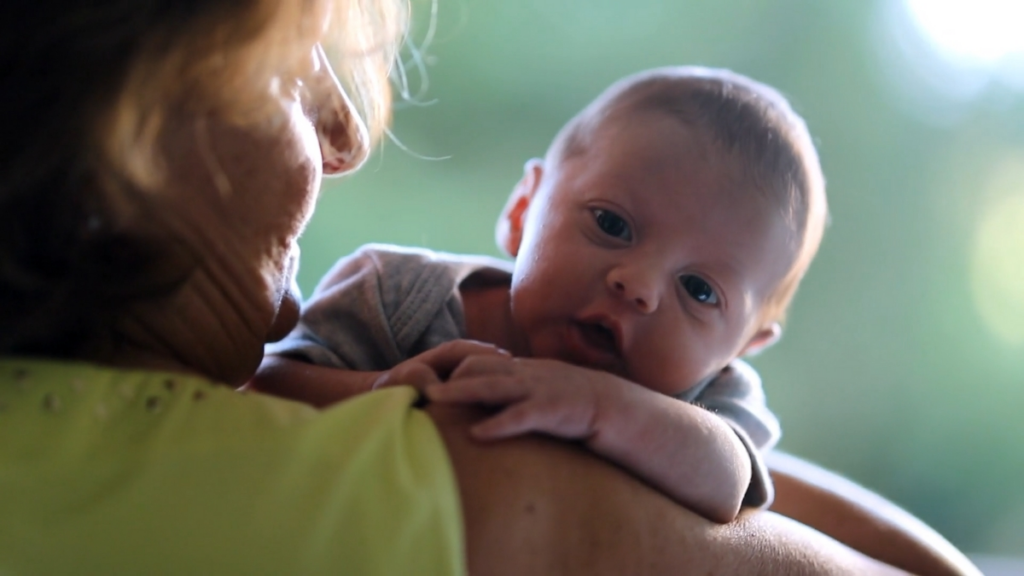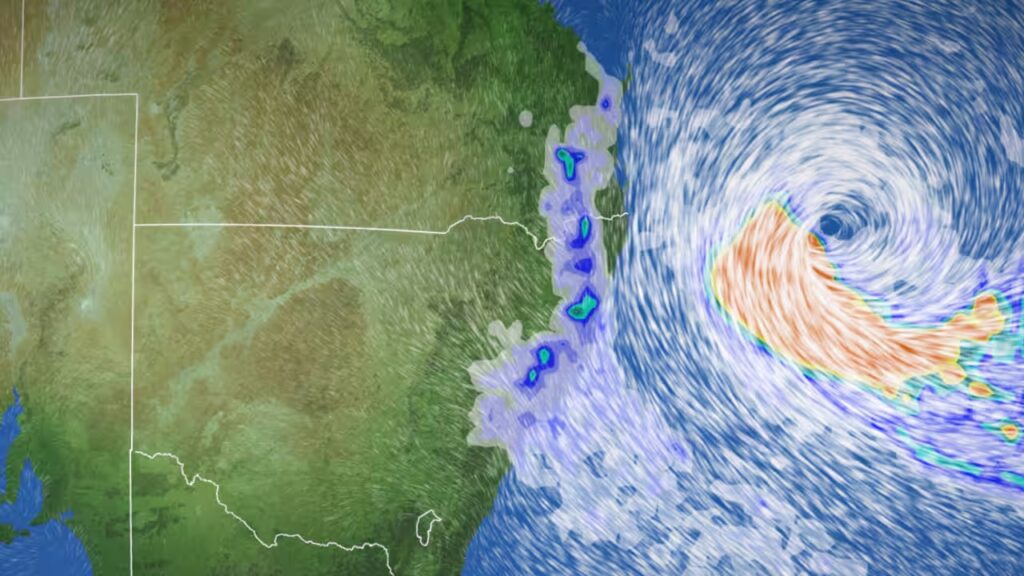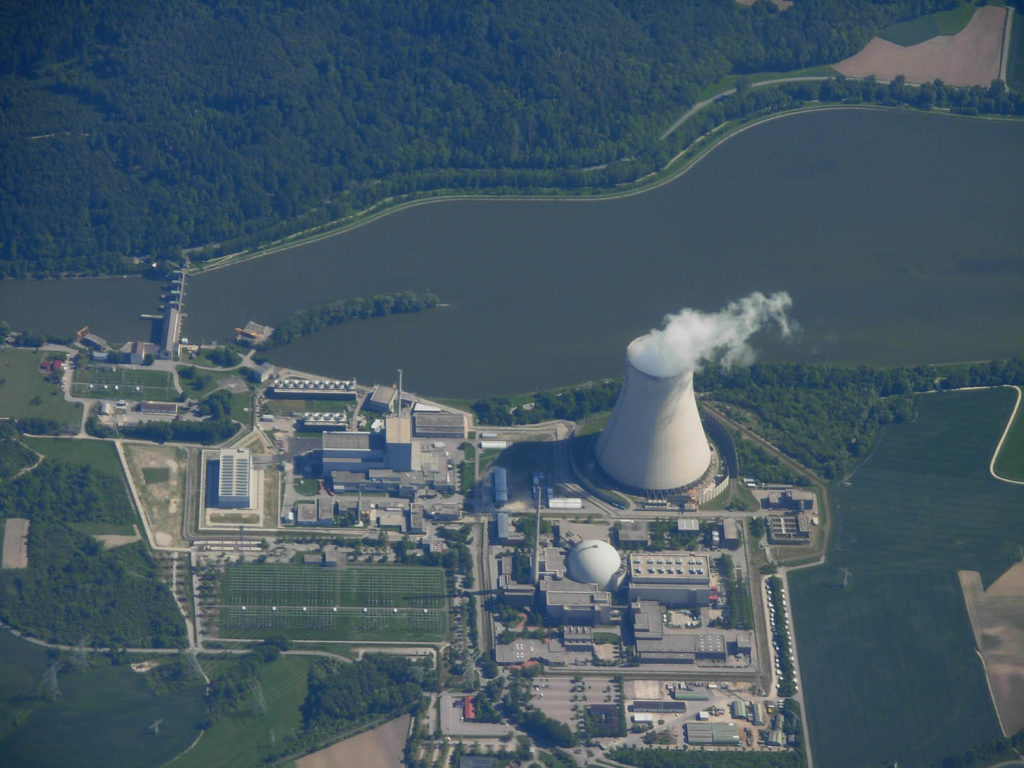Australia has entered the ‘era of climate consequences’, with the vast majority of Australian households already impacted by climate change. Climate pollution from the burning of coal, oil and gas is fuelling increasingly severe bushfires, floods, heatwaves and destructive storms. As a result, the overwhelming majority (84%) of Australians report being directly affected by at least one climate-fuelled disaster since 2019.
Building on this research base, the Climate Council and Parents for Climate set about painting a clearer picture of how fossil fuels like oil and gas are not only adding to our pollution woes but are also pushing up inflation and the costs of living for Australian families. Our analysis shows that oil and gas are making a material contribution to overall inflation.
Domestic inflation reached its highest level in more than 30 years, with the cost of everyday items increasing by an average of 22 percent since the start of 2020 (ABS 2024). The price of oil and gas has risen much more than other goods, putting pressure on family budgets and pushing up inflation overall. On top of inflation, the cost of buying expensive petrol and gas is something that many Australians can’t avoid. Most Australians drive a petrol or diesel car and around two in three households (more than five million properties) use fossil gas for heating, cooking or hot water.
Our new, national poll of parents provides valuable quantitative data on how this is impacting families. While a separate survey provides a rich trove of testimonies from families all over Australia who are living through a cost-of-living crisis exacerbated by climate pollution.
We find that Australian families are struggling to cope with sky-high costs of housing, groceries, electricity, petrol, and insurance premiums. Financial strain has grown over the past two years. As a result, Australian children are suffering and missing out on necessities like quality, healthy food and fun activities with their family and friends.
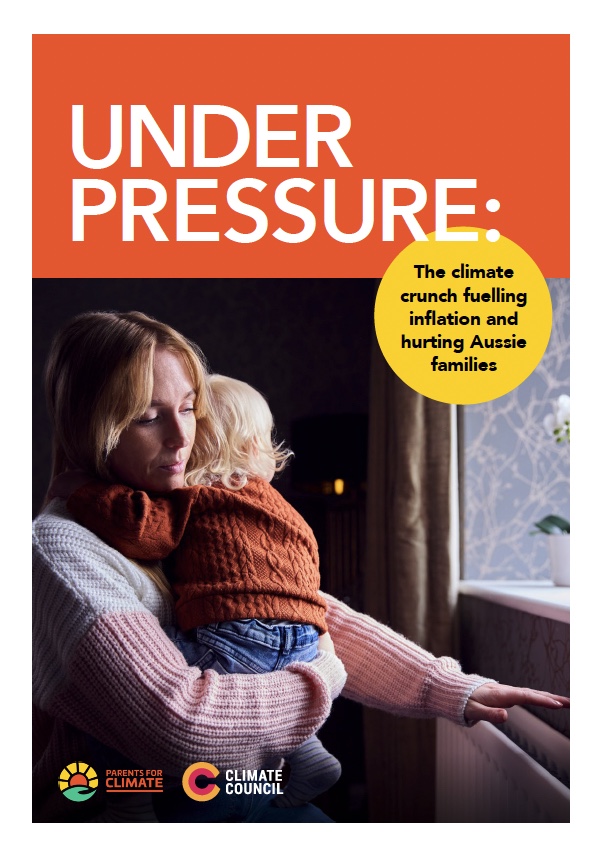
Key Findings:
1. The climate crisis is driving up the costs of insurance for all Australians as extreme weather events become more common and intense, risks to life and property worsen and premiums rise in response.
- Pollution from coal, oil and gas is overheating our planet and driving worsening unnatural disasters. As the risk of property loss and damage increases, so do the premiums being charged by insurance companies.
- Collectively, Australians are paying $30 billion more today on insurance than they were only 10 years ago.
- Many households at higher risk of extreme weather are being priced out of insurance altogether, as it becomes more difficult or too expensive for people to source insurance.
2. Australians are paying much more today to power their homes with gas, or refuel their cars. Higher costs for oil and gas are also fuelling inflation, which increases the price of many other everyday items. Petrol and diesel costs have increased significantly. Filling up a 70-litre tank of petrol costs about $30 more now than it did at the start of 2020.
- With transport costs embedded in many items we commonly buy, this is a key driver of inflation, and affects the price of everyday items like groceries.
- Heating homes with gas has become increasingly expensive, with the gas bill for a four bedroom home in Victoria jumping up by as much as $750 per year since 2020.
- Many businesses, from restaurants to office buildings, are also paying more for heating, cooling or cooking that’s powered by polluting gas. These costs are ultimately passed onto their customers, and are another driver of inflation.
- The recent peak in inflation was the highest in more than 30 years, and has seen the cost of everyday items increase by 22 percent on average since 2020. Our analysis shows the price of petrol, diesel and gas have all risen two to three times higher than that – making a
bad situation even worse.
3. Rising inflation, and relying on expensive oil and gas, is crunching household budgets with many families reporting they are under significant stress.
- Rising inflation is biting family budgets hard, with three in 10 parents polled struggling to afford food, power bills or insurance either frequently or all of the time.
- As a result of rising costs, 85 percent of parents polled said they were having to cut back on essential items, and 77 percent said this was impacting significantly on their own wellbeing and that of their families.
- As raising a family has become much more expensive in Australia, those who filled in a qualitative survey on the impact this was having commonly described feeling “under pressure”, “stressed” and “anxious”.
4. To cope, most Australian families are sacrificing many things including less sport and recreation for their kids and cutting back on the amount or quality of food.
- As energy prices rise, two in three families polled have been forced to cut back on heating and cooling their homes, and some have had to stop using heating (15 percent) or cooling (12 percent) altogether.
- As the price of groceries has skyrocketed, 53 percent of families have been left with no choice but to cut back on the quality and quantity of food they buy, including skipping meals.
- One third of parents say their children have been impacted by a lower variety and quality of food.
- Parents report making other sacrifices that impact their children, such as cutting back on sport and recreation, or missing out on school excursions.
5. Polling shows both the rising costs of living and the climate crisis are pressing concerns for most Australian families, and parents worry costs will only worsen if we don’t cut climate pollution further and faster.
- Polling reveals that both rising costs of living and the climate crisis are pressing concerns for a clear majority (71 percent) of Australian families.
- 72 percent of parents polled said they were concerned worsening extreme weather, driven by climate pollution, could impact on farming and lead to higher grocery prices.
- 71 percent of parents polled said they were concerned about higher insurance costs, as more intense and frequent unnatural disasters are fuelled by coal, oil and gas.
- 75 percent of parents polled said they were concerned about higher power bills due to more volatility in the price of polluting coal and gas.
6. Cleaner, cheaper solutions to the cost of living and climate crises are understood and popular with parents. To ease pressure on people’s wallets and the planet, they need to be more accessible.
- Parents know they are paying too much to heat and cool their homes, and that better options are available, but upfront costs or being unable to make changes to rental properties were named as key barriers.
- Our analysis shows motorists who have to fill the tank in a petrol car are forking out $2,000 more each year on fuel than those able to drive an electric vehicle.
- 88 percent of parents either have rooftop solar or would consider getting it, and 70 percent either have a household battery or would consider getting one.
- The vast majority (84 percent) of families polled either have installed, or would consider installing energy-efficient electric appliances, and 76 percent have installed or would consider installing double-glazed windows and insulation to reduce energy costs.

